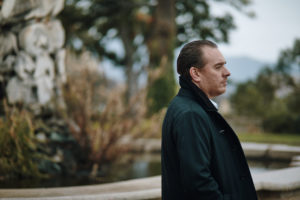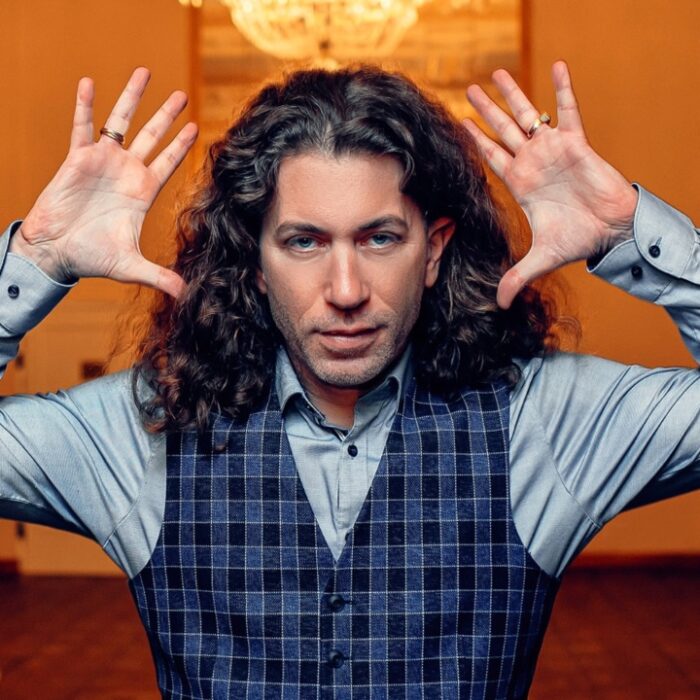
Q & A: Francesco Meli on ‘Uniti Per Verdi’ & the Importance of Italy’s Composer
By Francisco Salazar(Credit: Victor Santiago)
On Nov. 21, Francesco Meli will perform at the Uniti per Verdi concert, which he organized with Riccardo Frizza with the help of the Società del Quartetto.
As one of the great Verdi tenors of his generation, Meli has been an advocate to save the Villa Sant’agata and hopes that with this upcoming concert, the government and the people of Italy, will learn more about their history.
OperaWire spoke with Meli about the concert and what Verdi means to him.
OperaWire: Tell me when you decided to create this concert.
Francesco Meli: Many of my colleagues put one video on Instagram and wrote something on social media. And then my friends, my agent, my wife, and others talked about the issue and we spoke about creating a viral video on Facebook or Instagram or something else. But together we thought it would be better if we did something real and not some video that would be on Instagram. That would most likely be the end there. For me, the strongest way was a concert with other singers and conductors. We would sing together almost as if we were one voice. With Riccardo Frizza we thought about the concert and thought it would be great. Then we spoke with the Società del Quartetto and the president Ilaria Borletti-Buitoni and they thought the project was wonderful. They decided to help us and rented the theater and made the program. They also helped with the publicity and packaging to realize the concert.
OW: What has surprised you so far in planning this concert?
FM: The best thing was that my colleagues have all said that they would come and help and save the memory of Verdi. Verdi is important for Italy as he is the most important Italian composer. But he is also important as a part of teh history of the country and part of the Risorgimento. Verdi is one of the many men who made Italy we know. He used his ideas and his music. He is one of the fathers of our country and we must save our history. Verdi’s operas always speak of the people like in “Macbeth,” “Ernani,” and “Nabucco.” They all speak about Italy even if not directly.
The responsibility of every musician in Italy is to make sure they save their history, which is Verdi’s house. We must do something for our country.
OW: Who did you call initially and what was the response from your colleagues?
FM: We called every singer like Eleonora Buratto, Anna Pirozzi, Luca Salsi, and Maria Agresta. Unfortunately, most singers were not available. But they will be with us in spirit. Everyone wrote something about Villa Verdi and called for the house to be saved. Altogether we will be eight singers in the concert but when you think of all the singers who support this effort, it feels more like one million singers. Eleonora Buratto, Massimo Cavalletti, Roberto de Candia, Chiara Isotton, Roberta Mantegna, Caterina Piva, Piero Pretti, Annalisa Stroppa, and Riccardo Zanellato will perform. Davide Livermore will also be there and say some words about Villa Verdi. We hope this concert gets the attention it needs. I hope that it can say something about the situation and we can send the message to Italy and its government.
OW: What do you hope the government will do now that it has agreed to buy the property?
FM: I hope that Villa Verdi will be a museum and a museum for the history of Italy. The Minister of Culture should preserve this place and this is what I hope. The government has said it will buy Villa Verdi and said that no one should worry about teh preservation of the house. I hope that will be true because with politics there is always a lot of talk. So we will see.
OW: You are one of the great Verdi Tenors of your generation. What does Verdi mean to you?
FM: Verdi is very important because he is my musical father and I sing many Verdi operas. I sing for the most part Verdi repertoire. Right now I am singing “Ernani,” then in December I am doing Don Carlo,” then “Un Ballo in Maschera” and then “La Traviata.” One month ago I sang “Aida” and before that was also Verdi. I love Verdi. He is a genius of music and dramaturgy. The music and the text are so well connected. The music is not only for the wonderful line but the text infuses the music. They work together. You understand the situation perfectly. You feel you are inside the story through his music. If you read Verdi’s writings you realize how relevant his letters were. You question when he wrote it because it is so relevant. I recently read a letter that spoke about immigrants and about impoverished people. It all felt like it was happening now. History always comes back and Verdi was able to understand this. Even though he was rich, he lived alongside teh farmers and understood their issues. He is the great father of Italy and an important figure in our culture.


